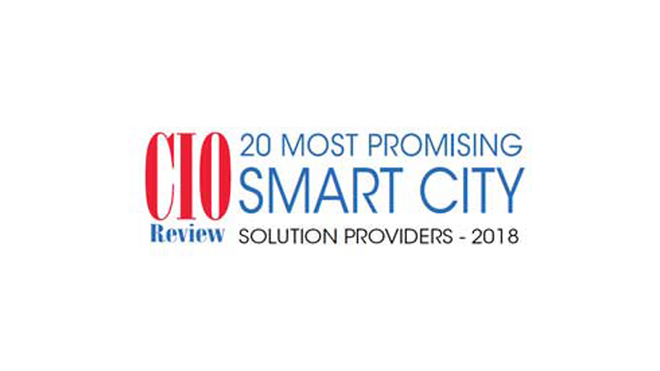20 Most Promising Smart Solutions Providers 2018

The integration of information communication technology (ICT) into smart city projects has significantly encouraged the ‘smart cities’ concept’s implementation aimed at improving the quality of life. From smart lighting to smart grids and parking lots, there is a lot to be done on this front collectively to execute a smart city plan. It’s crucial to create a master plan or a roadmap to build a smart city. While developing a smart city framework, an overall plan of the city is the critical step that covers every aspect from public safety to transportation to utilities. Focusing on smart utility systems, electric vehicles, and a lot more, businesses are coming up with innovative solutions that can aid these smart city initiatives. And, the concept of connected things facilitated by IoT along with technologies like blockchain seems to be aiding such initiatives.
Data analytics also has a significant role to play in this regard. Data shared via blockchain is considered more safe and impenetrable against any cyber threat and hence, blockchain remains a key technology to be used while developing smart cities. On the other hand, obtaining the right data for the right applications at the right time while also considering data protection regulations also remains crucial for building smart cities.
In the last few years, a lot has happened on this front with the smart city market expected to obtain massive growth in the coming years. At such a juncture, it’s crucial for governments and public sector entities to opt for efficient solutions. To ease this process, we have come up with a list of “20 Most Promising Smart City Solution Providers 2018.” These companies featured in this edition offer solution that can aid their vision of transforming cities and communities.

